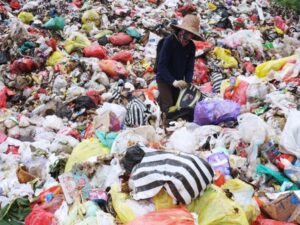It is challenging to anticipate the types of trends that will shape an industry for the year ahead, but one thing that is abundantly clear is that there is a wave of public awareness towards environmental issues in South Africa.
The pandemic has been the source of the build-up of many of the trends we see in business today. Research from the Boston Consulting Group unpacks the environmental issues due to the COVID-19 outbreak. The words ‘environmental’ and ‘sustainable’ have become top of mind when coming to making purchasing decisions. According to Boston Consulting Group, 90% of consumers are equally, if not more concerned about environmental issues after the COVID-19 pandemic. 95% believe they can act to reduce waste, tackle change, and protect wildlife and diversity. About 30% believe that the impact of their actions can make a difference. Environmental concerns are now part of the decision-making process, given the global focus on sustainability and particularly climate change. That then influences the manner in which retailers and their producers look at the problem, as well as how to mould their customers’ choices. Brian Küsel, director of BiobiN South Africa said, “The public already knows the impacts of waste and we have especially seen this with plastics and packaging. Knowing the devastating impacts of plastic accumulation in the ocean, consumers are selective in choosing the retail outlets that they shop at.” “Shops that offer recyclable packaging, compostable alternatives, and reusable bags seem to get the nod, while shops that use excessive amounts of plastic packaging are often called out for it,” Küsel added.Another significant point to make is that for members in retail, sustainability poses a bigger question than just packaging, recycling, or torrents of plastic waste cascading into our oceans. There needs to be a holistic approach that is set to include labour and social issues such as a child or forced labour being used in the production of items. Is there an abuse of natural resources?
In South Africa, the solution would be to create an ESG (environmental, social, and governance) inventory that encompasses the complete view and scores each product accordingly. This inventory would be extremely vulnerable to the dangers of greenwashing, so it would have to be created and maintained by a trusted third party such as an NGO like Greenpeace or WWF. One thing is certain; the trusted third party could never be a governmental agency, given the growing lack of trust when it comes to government entities. How technology can help The technology generates a large amount of data of production quantities, which will need processing. It is ideal for the collaboration in providing the means for tracking items across the supply chain via the Internet of things. Blockchain would be the perfect way to create a platform on which the data would be secure and unchangeable. The environmental/sustainability challenge is a global one, and it spans the entire ecosystem of every sector. Other strategies to decrease the production of fast fashion which ultimately ends up in landfills are upcycling, salvaging, repurposing, and swapping clothing made from repurposed fabrics and organically grown cotton which lessen waste.






